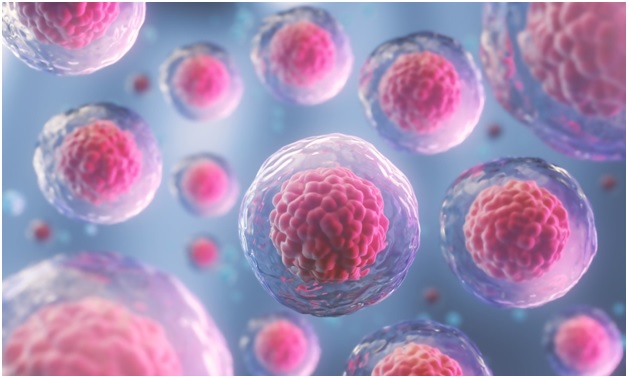If you yourself or someone you know is dealing with internal damage due to chronic medical conditions like type 1 diabetes or heart disease, you should read the rest of this stem cell article. The information you can gather from this article will surely help you know more about stem cells and how these can improve your overall health. Stem cells have been one of the most significant innovations in the healthcare industries, but only a few people know its existence and functions.

Stem cells are the cells from which all other human cells with special functions develop from. If you ask most people, the credit for who discovered stem cells goes to Canadian scientists Dr. James Till and Dr. Ernest McCulloch.
Together, Till and McCulloch published the first research paper on hematopoietic stem cells. Hematopoietic stem cells are the stem cells that create other blood cells. The research done by Till and McCulloch is what launched all future research in stem cells.
Over time, research on stem cells has become a critical part of the medical world. This is because of the physically restorative characteristics of stem cells. To ensure that you understand how vital stem cells are to the world of medicine, we are going to tell you all about 5 important restorative characteristics of stem cells and how they can affect the medical arena.
Get ready to have your mind blown!
Characteristics of Stem Cells #1: Ability to Proliferate and Differentiate Themselves
As previously stated, stem cells are the cells from which all other human cells with special functions develop. Proliferation and differentiation can make human stem cells form other types of human cells.
The function of stem proliferation is to divide single cells into two identical daughter cells. The function of stem differentiation is to make unspecialized embryonic stem cells acquire the features of specialized stem cells, and this natural process can even expedite once used with the right lab equipment.
For example, if the genes of an unspecialized embryonic stem cell are signaled by its outside physical and chemical conditions to develop into a heart cell, then it will turn into a specialized heart cell.
The process of stem cell proliferation is important to the world of medicine. This is because researching it can help scientists better understood how diseases and conditions caused by abnormal cell proliferation, such as cancer, develop. This research will help us figure out how to cure these illnesses and conditions.
Through this process, medical experts can better understand how a specific illness starts and how it affects the human body. The information they can gain from this process will help them determine what necessary treatments should be introduced to the public in order to manage the symptoms or combat a specific disease. Can you imagine how many lives will improve and will be saved through this process alone?
The process of stem cell differentiation is also important to the world of medicine. This is because researching it can help scientists learn how to make stem cells into human body cells for regenerative purposes. For example, scientists can find a way to turn embryonic stem cells into new, healthy heart cells. Scientists can then replace the diseased heart cells with the healthy ones. The heart is one of the most important organs in the body, and through stem cell differentiation, more and more people can continue to have a healthy heart – regardless of how stressful or old they get.
- Ability to Develop in Embryonic Cells
If you have not noticed yet, there are two major categories of stem cells. One of these categories is embryonic stem cells. Embryonic stem cells are stem cells that develop in human embryos.
Scientists retrieve most embryonic stem cells from the embryos of developed, fertilized eggs from in vitro fertilization. Women donated these unused embryos for research. The women that these eggs belong to also gave consent to use their eggs.
Embryonic stem cells are especially important to the world of medicine. This is because they are very regenerative.
Embryonic stem cells are also pluripotent. Pluripotent means that they can turn into all types of human cells.
Embryonic stem cells are prone to growing in research cultures. They are also less likely to have complications when inserted into a human body.
- Ability of Embryonic Stem Cells to Proliferate Without Differentiating
Embryonic stem cells can proliferate for a year or more in a laboratory without differentiating. In other words, embryonic stem cells can duplicate themselves over and over again in their unspecialized form without acquiring the characteristics of any specialized cell. This ability is useful in medicine because it helps scientists learn how to cultivate a large amount of embryonic stem cells.
- Ability to Develop in Adult Cells
Stem cells are not exclusively developed from embryonic cells. The second category that stem cells can develop from is adult cells.
Adult stem cells are also known as somatic stem cells. Scientists think somatic stem cells are undifferentiated.
Undifferentiated means that the stem cells have not developed into a specialized cell type. Scientists think adult stem cells are undifferentiated because they have lasted in a tissue or organ of the human body as-is for years. Adult stem cells are useful to medicine because scientists can test new drugs on them.
Using adult stem cells for regenerative purposes is also useful to medicine. This is because it is not as controversial as using embryonic stem cells. Click on the following link to find out more about utilizing adult stem cells for regenerative medicine.
- Ability of Adult Cells to Transdifferentiate
Although rare, some adult stem cells can change into cell types of other tissues or organs. Scientists call this process transdifferentiation.
Transdifferentiation is exciting to the world of medicine. This is because it shows scientists that they can reprogram certain adult cell types into other needed cell types through genetic modification.
Scientists have even figured out a way to genetically reprogram adult stem cells into an embryonic stem cell-like state in mice. Scientists are turning adult stem cells into embryonic-like stem cells because embryonic-like stem cells are less risky and more regenerative than adult stem cells.
Scientists call the process of genetically modifying adult cells into embryonic-like cells induced pluripotent stem cells. Scientists hope to form induced pluripotent stem cells in humans one day.
Doing so will be beneficial drug testing. It will also benefit the development and future of transplantation medicine. Forming human induced pluripotent stem cells will also make it easier for scientists to repair damaged tissues and/or organs.
Embryonic Stem Cells vs. Adult Stem Cells
The characteristics of stem cells that are embryonic are different from those that are adult. For example, embryonic stem cells can become all cell types of the body. Adult stem cells, on the other hand, can only differentiate into their tissue or organ’s cell type.
Embryonic stem cells also grow in a laboratory and cell culture easier. Adult stem cells cannot grow in numbers in a cell culture.
Adult stem cells do have a leg up on embryonic stem cells in one thing. Adult stem cells are less likely than embryonic stem cells to get rejected by the human body and immune system after transplantation.
Embryonic stem cells and adult stem cells are different in structure, but both of these can benefit the human body. Depending on your current health condition or health goals, it’s best if you weigh the pros and cons of each kind first before determining which treatment to use. Gathering information about the differences and effects of these stem cells will make it easy for you to manage your expectations and keep stress at bay.
To learn more about stem cell research, health and fitness, and the world of medicine, go to our website.
Talk To A Doc
Stem cells can be very useful in a person’s life. As long as administered properly, stem cells can even become your ticket to improve the quality of your life. If you’re interested to know more about stem cells and would want to undergo this kind of treatment, inquire from a professional. Get as much information as you can about stem cells and inquire how this treatment can fit your current health requirements.




